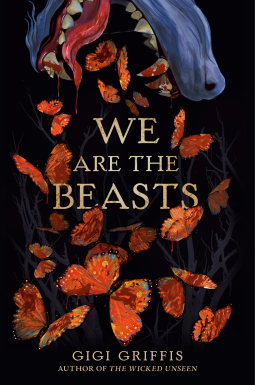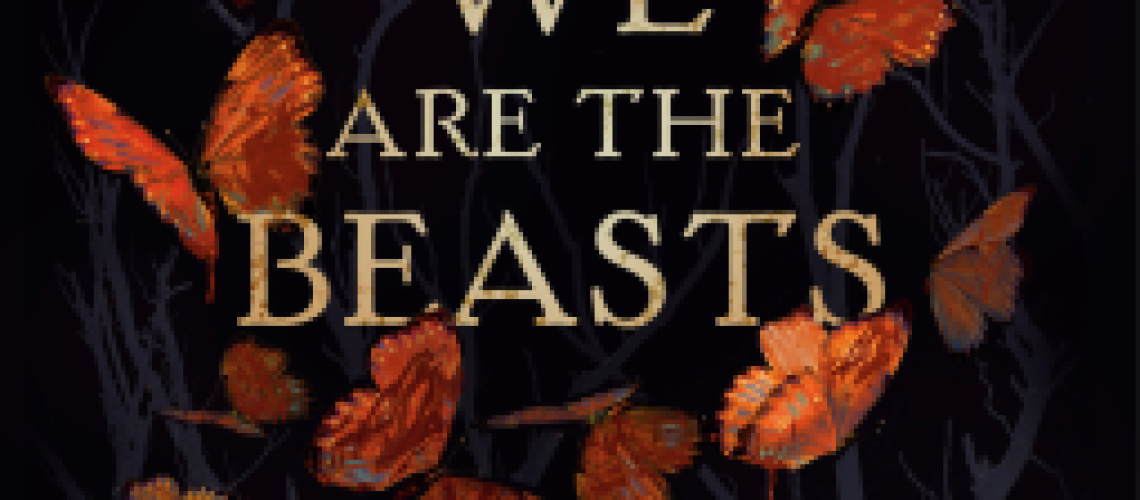I used to think horror was more meant for Halloween, but I have since learned that many people celebrate a tradition of spooky stories during December, including the most famous ghost story of all, A Christmas Carol. And really, any time is a good time for horror fiction, to let us escape for a time from real-world horrors. And so we come to the book I’m reviewing now, We Are the Beasts, by Gigi Griffis, set for publication on Dec. 10.
The cold weather we’re experiencing where I live lets me slip more easily into the setting of this book, where the specter of winter looms. It’s the French countryside of 1765, and a strange beast has been ravaging the land, killing some people, mainly young girls who have to leave their villages for various chores. The teenage protagonist, Joséphine, is aware of this danger as she tends her sheep, but her more immediate concerns are averting sheeply self-harm and staving off starvation in these tenuous times.

Besides, the beast of the forest is not the only threatener of violence here. Many women and children face frequent assaults from the men in their lives, and a priest was actually killed as a suspected witch last year; the new priest blames the sins of the women, and the men who are too soft on them, for the beast attacks, claiming it has been sent as divine punishment.
Joséphine and her best friend Clara end up using a beast attack as cover for a child they’re sheltering from domestic violence. They hide her and want to smuggle her away, but then things get more complicated as events snowball.
Hunters and soldiers take up residence among the cottages, requisitioning beds and food and saying the villagers should be proud to contribute to their own defense that way. Suddenly, starvation is a much more present danger as supplies dwindle, and the searches for the beast greatly complicate the efforts of Joséphine and Clara.
This part reminded me somewhat of John Wiswell’s Someone You Can Build a Nest In, when the nobility is ruthlessly ordering soldiers to burn buildings in a town to try and smoke out the monster’s supposed hiding place, ignoring that they are destroying people’s homes and livelihoods. Some people always know how precarious life and security can be, and others have that knowledge of precarity thrust upon them, but to be expected to be grateful and proud of imposed sacrifices on top of that is a bit steep.
I love this book. I love the vividness of its prose, from the immediacy of the opening, when Joséphine is trying to save a lamb that fell partway down a cliff, to her simmering anger at a soldier’s eating three days’ worth of lentils at one meal, to the dread invoked by a swarm of butterflies, and much more. The dialogue also felt completely convincing.
I love the characters in this book. Joséphine isn’t always right, and gets called out on that, but her heart is in the right place. She’s brave, sometimes reckless, but also tries to guard others against danger. She’s also willing to admit when she’s been a bit too hasty in her judgments. And although she’s the viewpoint character, others are sharply delineated and engaging. Clara is kind and thoughtful, but firm when she needs to be. A villager who’s been flirting shamelessly with visitors turns out to have had very good reasons, and a thoughtless rich girl turns out to have hidden depths. Even some prankster boys who seem completely callous can be very loyal and clever upon occasion.
Finally, I love the plot of this book. It’s a great idea and setup, using beast attacks to save people from monstrous domestic abuse, and Griffis goes into how complicated plans can be salvaged from their own flaws when people trust each other and work together. Some tragedies may be unavoidable, but when people recognize real risks and take action, some can be saved.
I highly recommend We Are the Beasts. Its great plot is heightened by compelling characterization and carried through with punchy and pungent prose, and I love how everything resolves by the end.
Content Warnings: Domestic violence, past sexual assaults, sexual discrimination (cast in a negative light), deprivations, and deaths.
Disclaimers: I received a free eARC of this book for review from the publisher via NetGalley.







